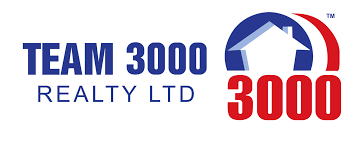What if you could shave a hundred thousand or more off the typical asking price of the home you want? What if you could do this in a central neighbourhood, in a more spacious unit, perhaps one with a view?
It’s possible. The only catch? You won’t own the land your home is sitting on.
There are pockets of land throughout Metro Vancouver – many in prime locations – that have been rented out to developers for a set amount of time, usually between 50 and 99 years. The developers or “leasehold landlords” build on and make improvements to the land, then sell or rent out portions of the buildings.
This lease land is often city-owned, but the federal government, First Nations bands, Universities and even private individuals also own and rent out land. The types of developments vary, from condos to townhouses to detached houses and duplexes to mobile. But all share one thing in common: unlike a traditional freehold unit, you own your share of the structure and any common property, but only rent the land beneath it.
Leasehold units are usually more attractively priced, more spacious, and in better neighbourhoods than their freehold counterparts.
Basically you are buying a “right of exclusive possession” until the end of the lease period, or until you sell that right to another person.
Often, leases are prepaid by the developer and incorporated in the selling price. If the lease is not prepaid, you will have to fork over rent for the land on top of any strata fees, taxes, and mortgage payments you’re already paying.
However, you’re often buying into a better lifestyle (at the cost of a better investment). And in some areas, you are buying the right to live somewhere you otherwise couldn’t, such as the UBC endowment land with its pristine forests and majestic ocean views.
What you won’t get is a share of the rising land value. In fact, rising land values can cost you.
The lease agreement, called a “ground lease,” sets out the terms and conditions upon which the developer has leased the property. If lease payments haven’t been prepaid, the agreement will usually allow for annual lease payments to be raised periodically to reflect current land valuesometimes dramatically.
In 2006, some False Creek condo owners saw their annual lease payments skyrocket by up to 700% when the City adjusted for the then-current land value. Subject to arbitration, the lease payments were later lowered by several hundred dollars per month because the recent sale of the Olympic Village site had dramatically skewed the land value.
If the lease on your unit is soon coming to an end, you won’t be able to say with any certainty whether it will be renewed, and if so, at what cost once rising land values have been factored in.
And if the lease is not renewed, most lease agreements give the landowner the right to buy out the buildings at fair market value, then do with the land what they wisheven if that means tearing down existing buildings, rezoning, or selling for redevelopment. You might have to move.
It’s uncertainties like these that make some leasehold properties less than ideal investments. They don’t increase in value as quickly as a freehold. They generally take longer to sell. And as the lease counts down to expiry, the property value can actually be negatively affected.
Banks don’t like the uncertainty surrounding certain leaseholds either. That’s why most lenders will ask for a hefty 25-30 per cent down payment. Lenders also use the expiry date of the lease as a guideline for loan amortization periods, lending only for five years fewer than the remaining lease. So if a lease expires in 20 years, for example, you would only be able to get a 15-year amortization period for that loan. Reverse mortgages for retirees can be next to impossible to get for most leasehold properties.
That depends. If lifestyle factors like being close to work or living in a beautiful area are most important, it could be the right choice for you. Look for long leases – 25 years or longer – and preferably for a length of time that far exceeds the time you plan to live there. Prepaid 99-year leases are the most secure, but they also cost almost as much as freehold.
And, most important, find a Real Estate Agent and mortgage broker who have experience in leasehold properties.

